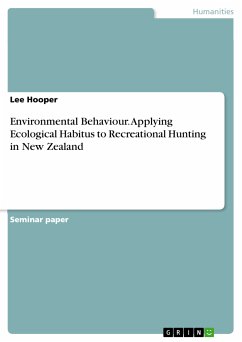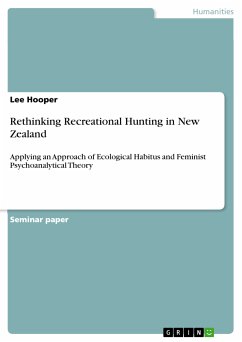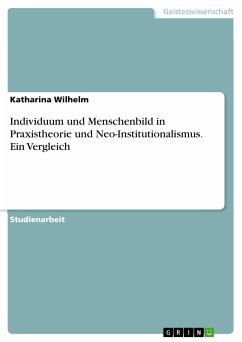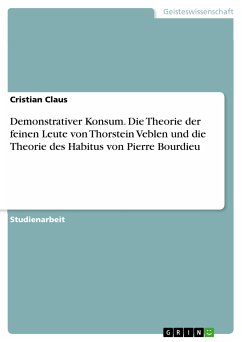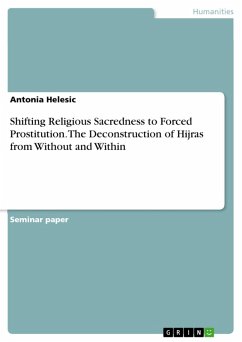Seminar paper from the year 2011 in the subject Ethnology / Cultural Anthropology, grade: 1,25, Massey University, New Zealand, language: English, abstract: The issue of whether recreational hunting hurts or benefits the environment is a controversial topic, with a range of different positions being advocated for. Through applying a socioecological theory that analyses the relational process between humans and the environment, I will argue that the position one takes on hunting, whether it be for or against, is a reflection of their ecological habitus. By outlining a brief history of hunting within New Zealand, my first hunting experience, and defining the key concepts of ecological habitus, I will link my own hunting perceptions and practices to ecological habitus and lay the theoretical foundations that influence an individual's position on the matter. It will be shown that in New Zealand the ecological habitus towards hunting is heavily influenced by one's environmental location, type of capital possessed, and identification with a national 'kiwi' identity. The impact of this is that the formation of hunting practices is a direct product of the relationships between people and their environment. By applying a concept of ecological habitus a more complex understanding of peoples' behaviour towards the environment can be gained.
Dieser Download kann aus rechtlichen Gründen nur mit Rechnungsadresse in A, B, BG, CY, CZ, D, DK, EW, E, FIN, F, GR, HR, H, IRL, I, LT, L, LR, M, NL, PL, P, R, S, SLO, SK ausgeliefert werden.

